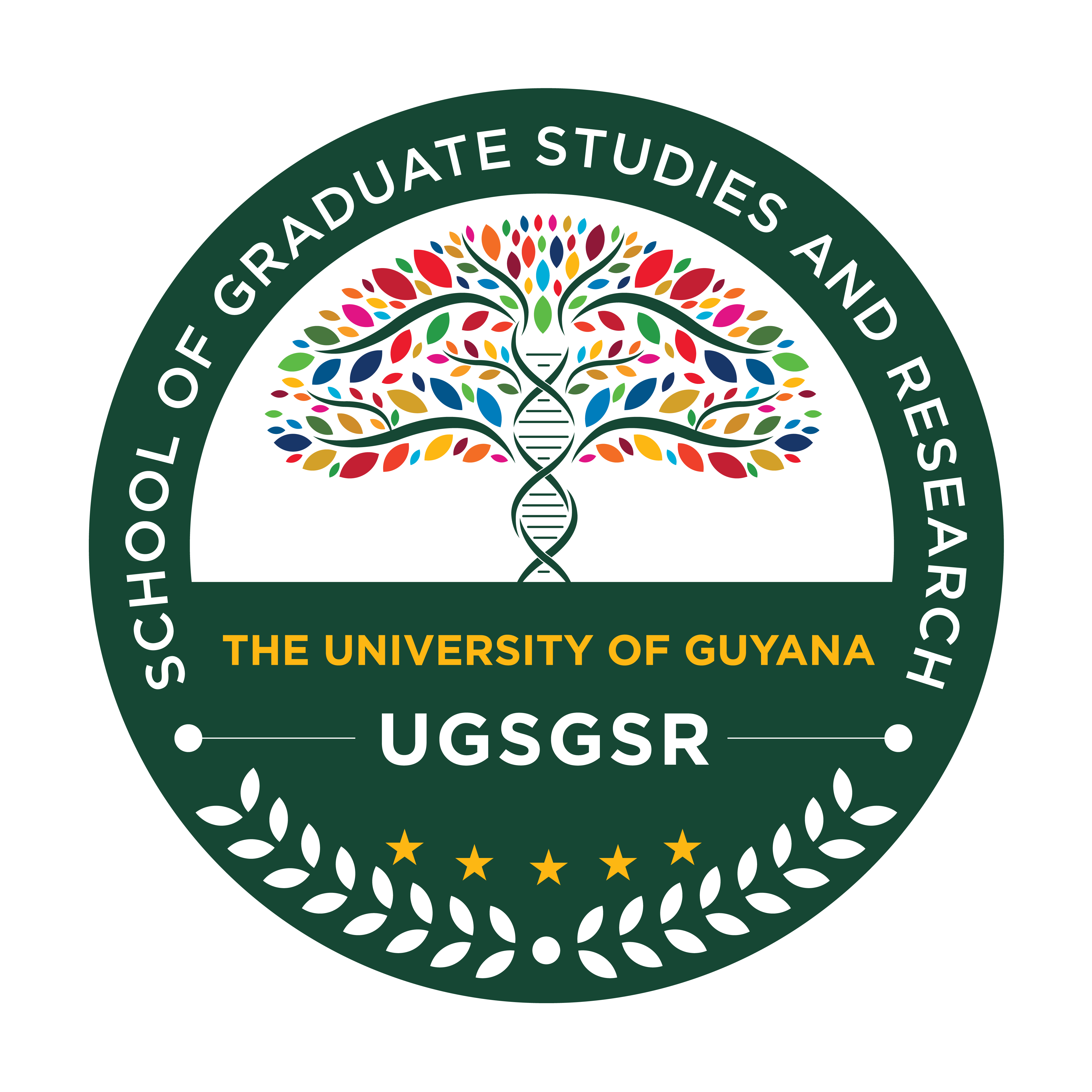Graduate Symposium 2022: Subtheme
Presentations on this sub-theme will feature innovative research in food security for sustainable development is currently incorporating the value chain approach, which goes from the small farmer (food production) to domestic and international markets in a sustainable way through which environmental and social externalities are considered. Applied Science with appropriate technology transfer in the agriculture sector, agroforestry developments and climate-smart agriculture are necessary for sustainable development.
Environmental Management, Biodiversity and Ecosystem services will feature studies dealing with climate change and its interactions with human and environmental systems, quantifying specific levels and effects of global warming, adaptation potential, green technologies, land-use planning and mechanisms for climate change mitigation. In Guyana’s resource-abundant economy, innovative research is also needed in cross-disciplines of environmental governance, green economy, circular economy, and low carbon development. On the other hand, Terrestrial and Aquatic Ecosystems play a critical ecological role and provide economically important services. Over time, there have been increasing threats to the biodiversity, including loss of species and populations habitats, degradation of important aquatic and terrestrial ecosystems, due to pollution, deforestation, unsustainable water extraction, inadequate infrastructural development, invasive species, overharvesting of species, climate change, all of them undermining the ecological services. Mitigation opportunities are offered by green energy technologies, restoration and reclamation, in-situ and ex-situ conservation, as well as alternative local economies based on sustainable community forestry, eco-tourism and products from extracts of plants with medicinal or agricultural uses.
Several Global changes have caused devastating effects on societies throughout the world including the loss of lives, major disruptions to public health in food systems, coupled with significant loss of livelihoods, while millions are at risk. Additionally, some Global changes have highlighted many social factors that create vulnerability, including social inequality and inequities, the disproportionate burden of the poor, gender issues, absence of adequate social protection measures; lack of adequate social infrastructure, among others. This subtheme covers topics such as rural-urban inequities, transforming built environments, climate change and human health, water and sanitation, improving health systems and services, mental health, and policy responses.
In what is considered the largest humanitarian crisis in the world, millions of refugees and migrants have left their homelands thus creating economic and social changes in the host countries. This sub-theme will focus on migration and resiliency, development, education, multiculturalism and humanitarian issues of Migrants, women, and children; gender-based violence, issues of suicide and poverty-related to socio-economic and psycho-social conditions.
Education for sustainable development in the 21st century requires a paradigm shift. The chaos of balancing the need for education against dealing with a pandemic has helped us to realize that education can no longer be business as usual. There is a need to align the skills and competencies taught at schools with what is needed to function and work effectively in society. This subtheme focuses on how societies can be transformed by reorienting education to help people develop knowledge, skills, values, and behaviours needed for sustainable development. Issues for consideration include advancing policy, transforming learning environments, building capacities of educators, empowering and mobilizing youth, and accelerating local level actions. Abstracts under this subtheme will focus on transformative education, special education needs, virtual learning, content and learning outcomes, action-oriented pedagogy/andragogy/cybergogy/heutagogy, the learning environment, autonomous learning, participation and collaboration, problem-solving, inter and transdisciplinary, and formal and informal learning.
The abstract must be submitted to the email address symposium.sgsr@uog.edu.gy on or before June 30, 2022.
